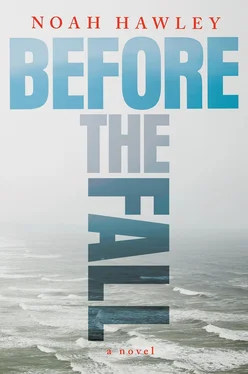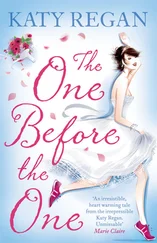The kidnapping would change that.
That was the summer of the Montauk Monster, which washed up on shore on July 12, 2008. A local woman, Jenna Hewitt, and three of her friends were walking on Ditch Plains Beach and found the creature.
“We were looking for a place to sit,” she was later quoted saying, “when we saw some people looking at something…We didn’t know what it was…We joked that maybe it was something from Plum Island.”
Described by some as a “rodent-like creature with a dinosaur beak,” the monster was about the size of a small dog and mostly hairless. The body was stocky and the limbs slender. It had two front paws with elongated, pale claws. Its tail was slim and approximately equal in length to the head and neck combined. It was short-faced, wearing an expression of agony or dismay; the postorbital part of the skull appeared long and stout. It had no teeth visible in the upper jaw, instead showing what could be described as a hooked beak of bone. The lower jaw contained a large pointed canine and four post-canines with tall, conical cusps.
Was it a raccoon, as some suggested, that had decomposed in the ocean? A sea turtle whose shell had been removed? A dog?
For weeks, photos of the bloated, distended corpse appeared in tabloids and online. Speculation increased that it was something cooked up in a lab at the Plum Island Animal Disease Center, a mile or so offshore. The Real Island of Dr. Moreau, they started calling it. But eventually, as with all things, a lack of answers led to a lack of interest, and the world moved on.
But when David and Maggie arrived in Montauk that weekend, monster fever was full-blown. Roadside T-shirt kiosks had sprung up. For five dollars you could see the spot where the monster was found, now just an anonymous patch of sand.
The Batemans were renting a house on Tuthill Road. It was a two-story white clapboard across the road from a small lagoon. Mostly secluded, the house was directly parallel to a stalled modern remodel, sheet plastic flapping over a gaping wound to the living room. In years prior, Rachel’s family had rented a house farther north, on Pinetree Drive, but that one had sold to a hedge-fund billionaire in January.
Their new clapboard home (Maggie would stay out there with Rachel through Labor Day weekend, and David would drive out on Fridays and take off the last week of August) was cozy and quaint. It had a large farmhouse kitchen and a sloped and creaky porch. The bedrooms were on the second floor, Mom and Dad facing the ocean. Rachel’s room (complete with a Victorian-era crib) faced the lagoon. They brought Frankie (the nanny) with them, a third pair of hands, as Maggie liked to say. Frankie sat in the back of the Audi with Rachel, engaged in a road-trip-long game of pick up Rachel’s pacifier, wipe it off, and hand it back. Frankie was a night-school nursing student at Fordham who helped take care of Rachel three days a week. She was twenty-two, an émigré from the wilds of Michigan who moved to New York with a boyfriend after college, only to have him leave her for the bass player in a Japanese surf-punk band.
Maggie liked her, because spending time with Frankie made her feel young, something that being with David in his world — populated entirely by people like David, in their forties, and some even in their fifties and sixties — did not. Maggie had just turned twenty-nine. She and Frankie were seven years apart. The only difference between them, really, was that Maggie had married a millionaire.
“You got lucky,” Frankie used to tell her.
“He’s nice,” Maggie would say.
“So even luckier,” Frankie would say and smile. Among her friends there was a lot of talk about landing a rich man. They used to put on short skirts and tall boots and go to bottle-service clubs, hoping to land a Wall Street up-and-comer with a full head of hair and a dick of steel. But Frankie wasn’t really like that. She had a softer edge, having been raised with goats and chickens. Maggie never worried that Frankie was out to steal her husband away. It would be absurd, after all, to trade in your twenty-nine-year-old trophy wife for a twenty-two-year-old, like a cliché on steroids. And yet, she supposed, stranger things had happened.
Just a few years earlier she had been the one paid to teach other people’s children. A twenty-two-year-old preschool teacher, living in Brooklyn. She rode her bike over the Brooklyn Bridge every morning, using hand signals like she was supposed to. The foot traffic on the bridge was minimal at that hour. Joggers mostly. A few health-conscious commuters brown-bagging their way across the river. She wore a lemon-yellow helmet, her long brown hair fluttering behind her like a cape. She didn’t wear headphones or sunglasses. She braked for squirrels, stopping mid-span to take in the view and have some water. In the city she took Chambers to Hudson and rode north, checking behind her every minute or so for taxi drivers on cell phones or slicksters in German automobiles who’d stopped looking at the road.
She got to work every morning by six thirty. She liked to straighten up before the kids arrived, to restock supplies. The schoolhouse was small, just a few rooms in an old brick building next to a parking lot that had been turned into a playground. It was on a tree-lined street in a part of the West Village that had an almost old London feel. Sidewalks curved like crooked fingers. On Facebook she once posted that she liked this part of the city best, its timeless, genteel nature. The rest of the city felt too cold to her; wide avenues of windy business towers, like gleaming bank machines of human resource.
The first student usually arrived at eight, strolling or shuffling or scootering, hand in hand with Daddy or Momma, sometimes still half asleep, lying in a futuristic Maclaren or Stokke supercarriage. Little Penelope or Daniel or Eloise, shoes so small they could fit on a doll, tiny short-sleeved shirts with checks or stripes like one day they would grow up to be wealthy nerds, just like Daddy. Four-year-old girls in eighty-dollar dresses with one pigtail or flowers in their hair picked from a pot outside a brownstone by a harried parent on the way to school.
Maggie was always there to greet them, standing in the asphalt playground, smiling with sunny exuberance as soon as they appeared, like a dog who jumps to its feet at the sound of a key in the front door.
Good morning, Miss Maggie , they cried.
Good morning, Dieter; good morning, Justin; good morning, Sadie.
She gave them a hug or mussed their hair, then said good morning to Mommy or Daddy, who often grunted their replies, having started texting the moment their kid’s feet touched school property. They were lawyers and advertising executives, magazine editors and architects. The men were forty or older (the oldest father in her class was sixty-three). The women ranged from late-twenties supermodels with children named Raisin or Mudge to harried working moms in their thirties who had given up on finding a living, breathing husband and convinced a gay friend to come in a cup in exchange for six weekends a year at the summer house in the Catskills and the honorary title of “uncle.”
She was a patient teacher, sometimes inhumanly so, warm and thoughtful, but firm when necessary. In their evaluations, some parents wrote that they wished they could be more like her, a twenty-two-year-old girl who always had a smile and a kind word, even to a screaming child who had just screwed their nap.
Maggie usually left the school around four, walking her mahogany-colored bike to the curb before snapping her chin strap and lurching into traffic. In the afternoons she liked to ride over to the river and take the bike path south. She stopped sometimes to sit on a bench by the water and watch boat traffic, the helmet forgotten atop her head. She would close her eyes every time the wind blew. On days when the temperature was over ninety she might buy a shaved ice from a Mexican man with a cart — usually cherry — and sit in the grass eating it with the flat thumbnail of a tiny spoon. On those days she would take off her helmet and lay it on the grass like a lemon drop. She’d relax on her back in the cool green and stare at the clouds for a long time, flexing her toes on the lawn, before reaffixing her helmet and starting the long ride home, her lips stained the color of childhood.
Читать дальше












